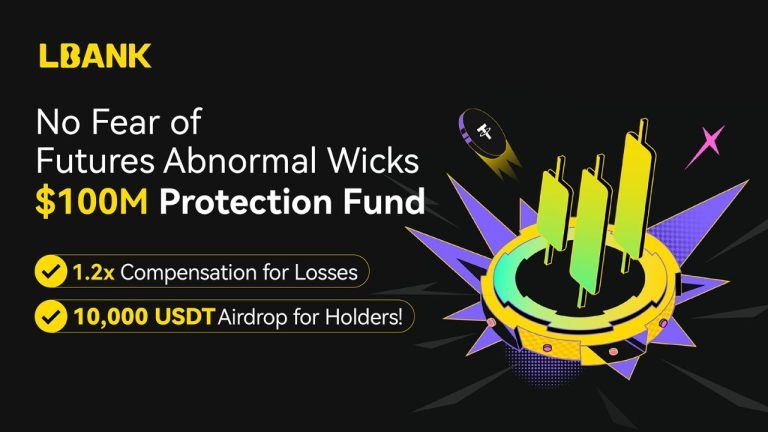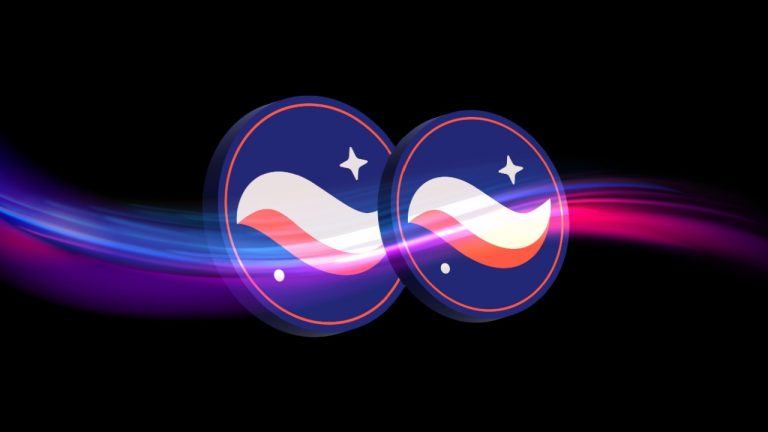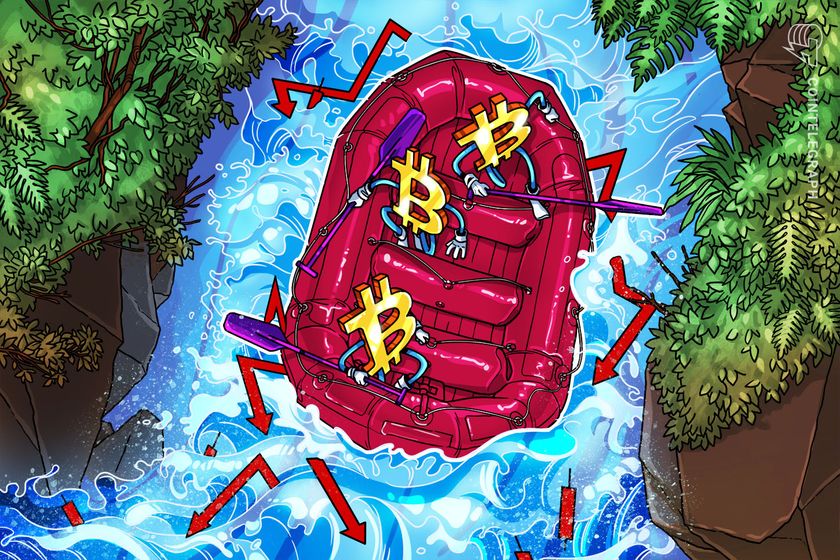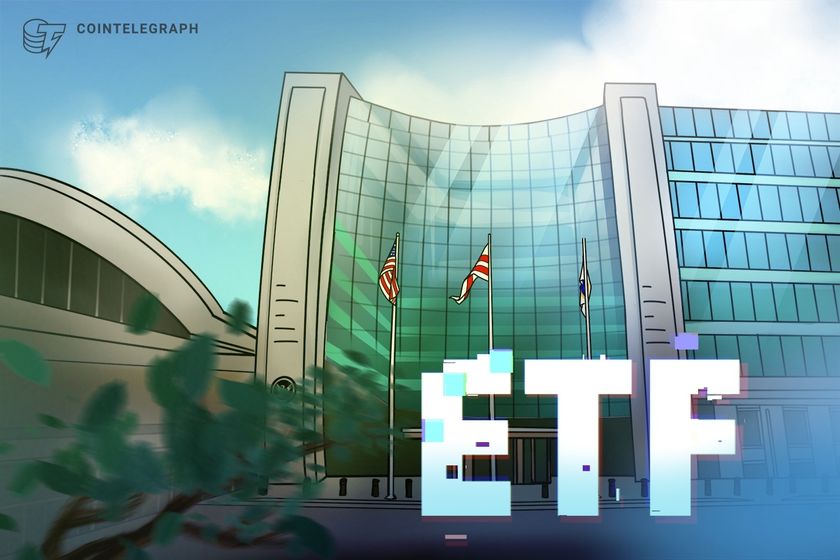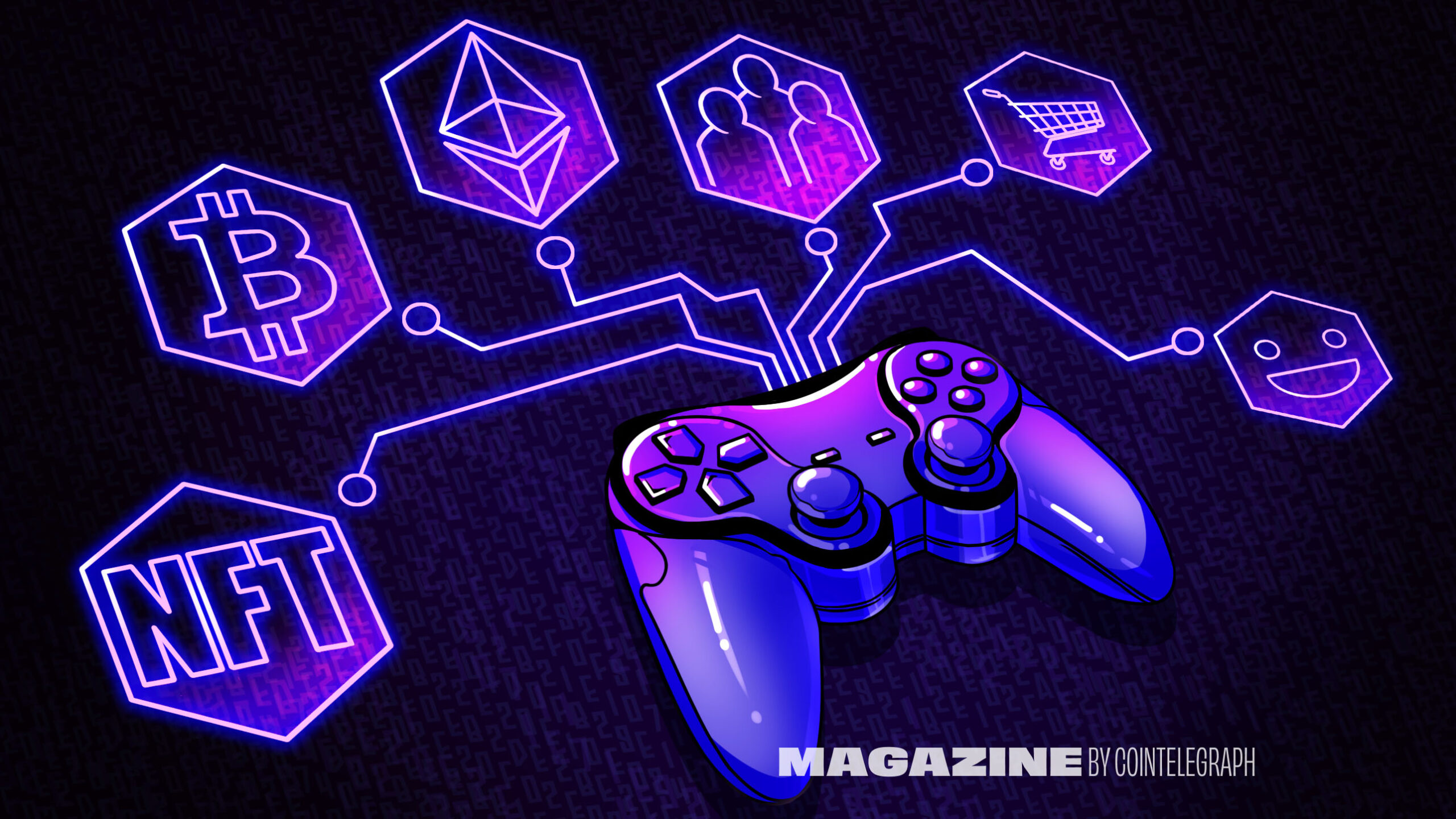
Web3 Gamer: PUBG devs’ Web3 project, Animoca’s $20M raise, Shardbound review

The company behind PUBG announces a new Web3 platform, monetization in Web3 and more.
PUBG meets Cosmos
Krafton, the company behind PlayerUnknowns Battlegrounds (PUBG), is
Traditional gaming and Web3 gaming are not that different. But Web3 gaming receives more hate than it deserves on monetization, primarily due to preconceptions around the cryptocurrency ecosystem.
Traditional games can get away with money-grab decisions because there are a lot of great games balancing the sheets. For Web3 games, the solution to breaking the general prejudice lies in creating better games, not turning the space into a cash counter.
Is $20 million enough to develop an ID system for Web3 gaming?
Animoca Brands raised $20 million in a funding round to accelerate the development of its Mocaverse project. The company was valued at $5 billion last year and has numerous investments in its portfolio, such as NFT marketplace OpenSea and Web3 games such as The Sandbox and Axie Infinity.
The funding round was led by CMCC Global and featured familiar names, including Sky Mavis founder Aleksander Larsen and Guild Games founder Gabby Dizon. Animoca Brands co-founder and executive chairman Yat Siu, who also participated in the round, commented on their goal:
The ongoing evolution of the internet involves a shift from hierarchical power structures to autonomous ones, and the DAO-based approach of Mocaverse ensures that its community will be focused on driving innovation and collaboration across the broader Animoca Brands ecosystem.
Mocaverse is preparing to launch its non-transferrable NFT collection called Moca ID as part of the funding round. The collection will enable owners to create their on-chain identities and participate in the Mocaverse.
Holders of Moca ID will have exclusive access to experiences within the project and earn loyalty points with their engagement. These loyalty points will be utilized in a permissionless and interoperable loyalty system that will be progressively decentralized. Will $20 million be enough to develop this ambitious system? With backing from a brand as solid as Animoca, the skys the limit.
Hot take: Shardbound
I was a hardcore League of Legends player back in the day. My only issue with the game back then was the mouse clicks. LoL was only available for PC during the early 2010s, and as a rookie copywriter at my agency, I was not able to play it silently during the office hours.
This is why the announcement of Vainglory, an iOS game sharing the same DNA with established titles like LoL and DOTA, was a big deal for me. I got an iPhone 6, then an iPad, just to be able to play that game silently like an office anarchist.
I played Vainglory for years and sold my iPad only after they finally pulled the plug on the game by shutting down its servers. So, imagine my surprise when I heard the guys behind Vainglory were making a Web3 game.
With experience from Grand Theft Auto developer Rockstar Studios, League of Legends maker Riot Games and award-winning Vainglory in their pockets, Bazooka Tango co-founders Bo Daly and Stephan Sherman took on the Shardbound project and were kind enough to walk me through the game and answer my questions.
In a nutshell, Shardbound is a turn-based tactical collectible card game that puts players against each other on a tile-based isometric map. After being given the chance to play the alpha version, I can fairly say Shardbound is a promising game not just in the Web3 sense that brings a new approach to an age-old genre. The general look of the game feels similar to auto chess battlers, such as Dota Underlords and Teamfight Tactics, with an art style resembling Blizzard games like Heroes of the Storm.
The free-to-play game bears all the usual tactical card game elements weve seen in the likes of Hearthstone, such as heroes who have skills and cards with mana, health, attack damage numbers and different abilities. Except all this happens on a 3D hex map that introduces fresh movement mechanics. Players get to move and position their minions and heroes as they like to get the maximum strategic advantage.
Blue mana crystals, which randomly spawn on the map, award players with extra mana when attacked. Players can win the match by either collecting 10 victory points or by zeroing out their rival heros health. Victory points are earned by hitting randomly spawned orange crystals, which grant the hero or minion that hits them an orange shard. If the hero or entity is killed by the end of the next round, the shard goes to the opponent. If they stay alive, the shard disappears and the holder gains a victory point.
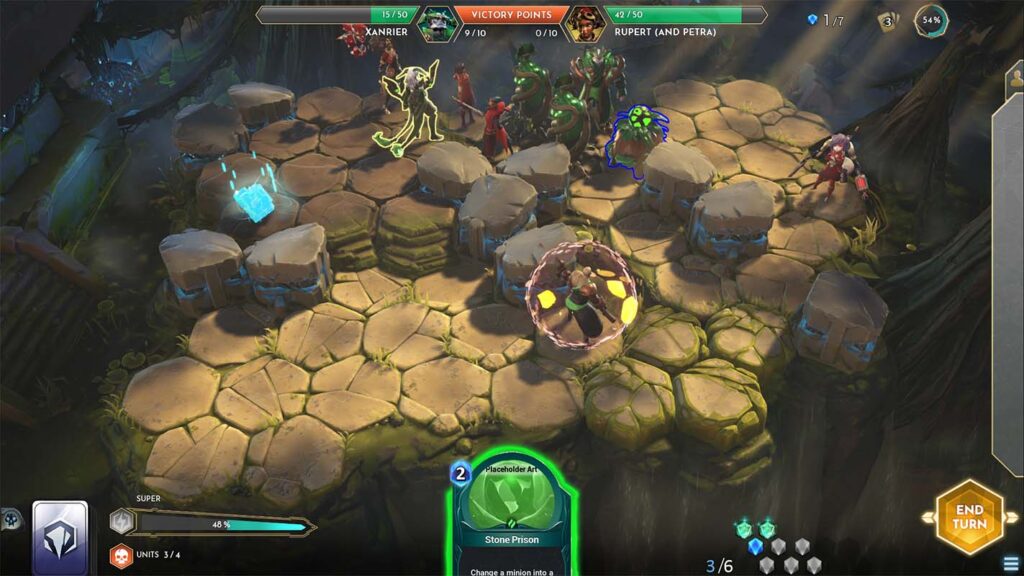
Shardbound has six different factions, each offering a unique hero and a different playstyle. For example, Landshapers, represented by the color green, offer a more control-oriented gameplay, while purple color-coded Bloodbinders take a more vampire-like approach and allow the player to damage their own hero to strengthen their minions.

Cards can be upgraded by combining copies up to five levels. The fifth level is called the tournament grade, with the end goal being to have a deck of 30 tournament cards.
Shardbound has two sides: one in Web2 and one in Web3. It is possible to reach tournament grade on the Web2 side, but it is much harder, as cards are dropped from mystery boxes, which means the player is mostly dependent on their luck. The Web3 side allows tradeable and purchasable cards, making the upgrade process much easier.
Competitive players will eventually have to get into the Web3 side of Shardbound to keep their competitive edge.
Even in the alpha stage, Sharbound bears immense potential and is a candidate to be an all-time classic with its innovative features. The game gives Web3 gaming an actual product that focuses on gameplay instead of monetization. If they dont stray from their current path and gain some mainstream adoption, it is safe to say that Shardbound is set for success.
More from Web3 gaming space:
Polkastarter Gaming rebranded to GAM3S.GG after securing $2 million in seed funding.
Crypto entertainment experience Tokyo Beast was announced at Korea Blockchain Week.
Planetarium unveiled Verse8 and Immortal Rising 2.
Zynga released the mint details for its Web3 IP, Sugartown.
Blockchain-based MMO Heroes of Mavia introduced the mass ownership model.
The Captain Tsubasa avatar collection is coming to The Sandbox.
Creator of the Deadfellaz NFT collection, DFZ Labs, is creating a trading card game codenamed RIP TCG.

Go to Source
Author: Erhan Kahraman

